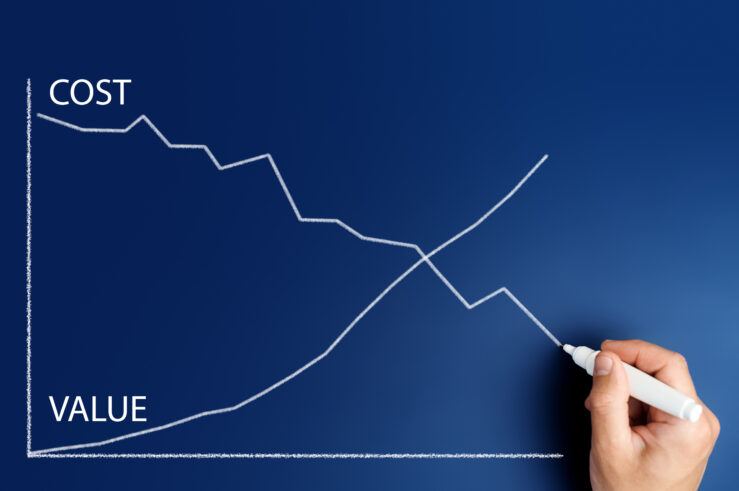Showing results for: “Valid C1000-170 Study Materials 🕗 C1000-170 Latest Exam Answers 🏮 Trusted C1000-170 Exam Resource 🦍 Search on 【 www.pdfvce.com 】 for 【 C1000-170 】 to obtain exam materials for free download 🐀Valid C1000-170 Dumps Demo”
Rules Without Reason
In his July Executive Order, President Joe Biden called on the Federal Trade Commission (FTC) to consider making a series of rules under its purported authority to regulate “unfair methods of competition.”[1] Chair Lina Khan has previously voiced her support for doing so.[2] My view is that the Commission has no such rulemaking powers, and ... Rules Without Reason
Labor Antitrust Analysis Should Focus on Actual Anticompetitive Agreements
Biden administration enforcers at the U.S. Justice Department (DOJ) and the Federal Trade Commission (FTC) have prioritized labor-market monopsony issues for antitrust scrutiny (see, for example, here and here). This heightened interest comes in light of claims that labor markets are highly concentrated and are rife with largely neglected competitive problems that depress workers’ income. ... Labor Antitrust Analysis Should Focus on Actual Anticompetitive Agreements
FTC Rulemaking Under UMC Could Mean Return of the National Nanny
The Federal Trade Commission (FTC) has been in the antitrust-enforcement business for more than 100 years. Its new leadership is considering some of the biggest changes ever in its enforcement methods. Instead of a detailed analysis of each case on its own merits, some FTC leaders now want its unelected bureaucrats to write competition rules ... FTC Rulemaking Under UMC Could Mean Return of the National Nanny
The Market for Speech Governance: Free Speech Strikes Back?
The tentatively pending sale of Twitter to Elon Musk has been greeted with celebration by many on the right, along with lamentation by some on the left, regarding what it portends for the platform’s moderation policies. Musk, for his part, has announced that he believes Twitter should be a free-speech haven and that it needs ... The Market for Speech Governance: Free Speech Strikes Back?
Making Rules vs Ruling
In an effort to fight inflation, the Federal Open Market Committee raised interest rates to 20% over the course of 1980 and 1981, triggering a recession that threw more than 4 million Americans, many in well-paying manufacturing jobs, out of work. As it continues to do today, the committee met in secret and explained its ... Making Rules vs Ruling
NEW VOICES: FTC Rulemaking for Noncompetes
On July 9, 2021, President Joe Biden issued an executive order asking the Federal Trade Commission (FTC) to “curtail the unfair use of noncompete clauses and other clauses or agreements that may unfairly limit worker mobility.” This executive order raises two questions. First, does the FTC have the authority to issue such a rule? And ... NEW VOICES: FTC Rulemaking for Noncompetes
Concentration Study Further Undermines Narrative that US Competition Has Sharply Declined
A new scholarly study of economic concentration sheds further light on the flawed nature of the Neo-Brandeisian claim that the United States has a serious “competition problem” due to decades of increasing concentration and ineffective antitrust enforcement (see here and here, for example). In a recent article, economist Yueran Ma—assistant professor at the University of ... Concentration Study Further Undermines Narrative that US Competition Has Sharply Declined
FTC Rulemaking and Unintended Consequences
For obvious reasons, many scholars, lawyers, and policymakers are thinking hard about whether the Federal Trade Commission (FTC) has authority to promulgate substantive “unfair methods of competition” (UMC) regulations. I first approached this issue a couple of years ago when the FTC asked me to present on the agency’s rulemaking powers. For my presentation, I ... FTC Rulemaking and Unintended Consequences
The FTC Abandons the Free Market
In December 2021, the Federal Trade Commission (FTC) released its statement of regulatory priorities for 2022, which describes its intention to expand the agency’s rulemaking activities to target “unfair methods of competition” (UMC) under Section 5 of the Federal Trade Commission Act (FTC Act), in addition to (and in some cases, presumably in place of) ... The FTC Abandons the Free Market
Chevron and Administrative Antitrust, Redux
[Wrapping up the first week of our FTC UMC Rulemaking symposium is a post from Truth on the Market’s own Justin (Gus) Hurwitz, director of law & economics programs at the International Center for Law & Economics and an assistant professor of law and co-director of the Space, Cyber, and Telecom Law program at the ... Chevron and Administrative Antitrust, Redux
The Major Questions Doctrine Slams the Door Shut on UMC Rulemaking
The Federal Trade Commission’s (FTC) current leadership appears likely to issue substantive rules concerning “unfair methods of competition” (UMC) at some point. FTC Chair Lina Khan, in an article with former FTC Commissioner Rohit Chopra, argued that the commission has the authority to issue UMC rules pursuant to the Federal Trade Commission Act based on ... The Major Questions Doctrine Slams the Door Shut on UMC Rulemaking
Can the FTC Use Rulemaking to Change Antitrust Law?
FTC Rulemaking Power In 2021, President Joe Biden appointed a prolific young scholar, Lina Khan, to chair the Federal Trade Commission (FTC). Khan strongly dislikes almost every element of antitrust law. She has stated her intention to use notice and comment rulemaking to change antitrust law in many ways. She was unable to begin this process ... Can the FTC Use Rulemaking to Change Antitrust Law?









